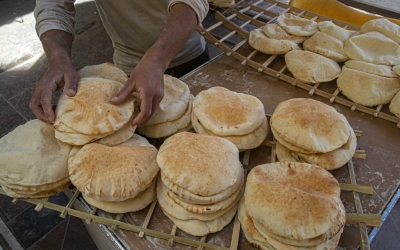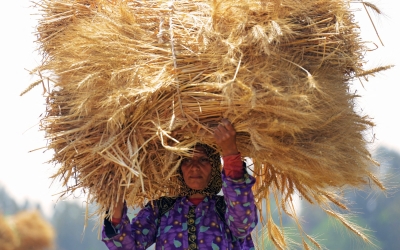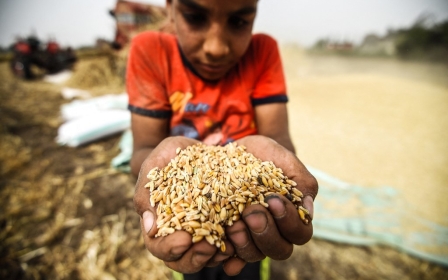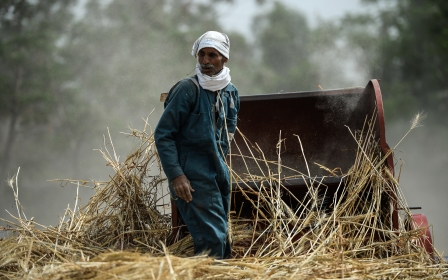Egypt: Consumers in shock as interest rates rise amid soaring inflation
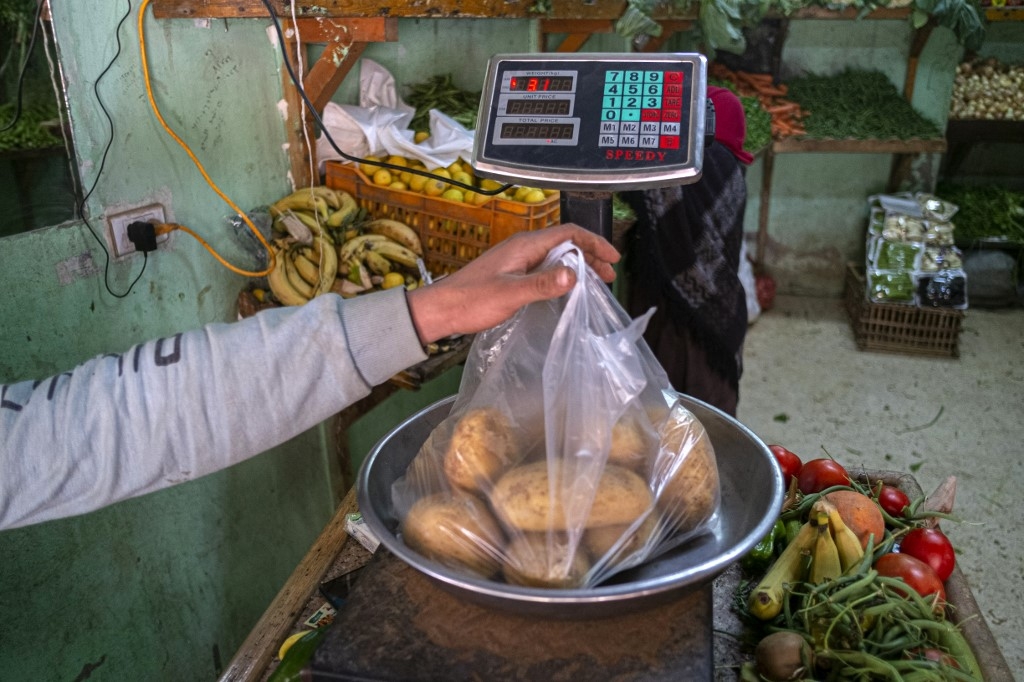
The Central Bank of Egypt (CBE) has raised the key interest rate by 100 basis points, provoking a chain reaction in a country that has for weeks now been braced for economic fallout from the Russian invasion of Ukraine.
During an extraordinary meeting on 21 March, the Monetary Policy Committee, the decision-making body of the CBE, set the overnight lending rate at 10.25 percent and the overnight deposit rate at 9.25 percent.
The bank cited global inflationary pressures made worse by the war in Ukraine as the reason for its decision.
"The rise in commodity prices around the world caused by supply-chain disruptions are adding to domestic inflationary pressures and external imbalances," the bank said in a statement.
"The central bank underscores the importance of the flexibility of the exchange rate for absorbing shocks and preserving Egypt's competitive edge," it added.
The bank's decision comes hard on the heels of similar moves by other central banks in the region. These decisions were also induced by the US Federal Reserve's rate hike, the first since 2018.
In February, Egypt's inflation rate rose to its highest level in nearly three years, reaching 8.8 percent, up from 7.3 percent the previous month.
The CBE said it would maintain its inflation target of 7 percent for the fourth quarter of this year.
"The path of future policy rates remains a function of inflation expectations, rather than of prevailing inflation rates," the bank said.
The 21 March meeting came ahead of the quarterly meeting of the Monetary Policy Committee, scheduled for 24 March.
Economic victim
Egypt, highly dependent on food imports, especially from Russia and Ukraine, from where almost 80 percent of the country's wheat imports came last year, has been a significant victim economically of the situation in Ukraine.
Over the past month, commodity prices have risen dramatically, igniting public anger and pressurising authorities to take radical measures to keep a lid on prices.
'These saving schemes will contribute to bringing inflation down by absorbing some of the liquidity in the market'
- Khaled al-Shafie, Capital for Economic Studies
Such measures included the Egyptian government forcing local wheat producers to sell a portion of their harvest to the government.
For the first time in years, the state intervened to dictate the price of bread produced by private bakeries for the tens of millions of Egyptians not registered in the national food rationing system.
Government-run supermarkets are also selling food to the public at below-market price, in a bid to rein in price hikes.
"These measures will pull in runaway commodity prices and reduce pressure on consumers," an independent economist, Walid Gaballah, told Middle East Eye. "They will eventually prevent traders from raising commodity prices in an unjustified manner."
The decision to raise interest rates coincided with some Egyptian banks launching saving schemes offering unprecedented interest rates.
Two banks announced saving certificates offering interest rates of 18 percent.
Monied Egyptians, including some members of the middle classes, descended on the banks in large numbers, seeking to buy the new certificates.
Encouraging saving
Egyptians deposit trillions of pounds in the nation's banks, which they use for investments or to provide loans to the public and the government. Many of Egypt's major government infrastructure projects are funded this way.
"These saving schemes will contribute to bringing inflation down by absorbing some of the liquidity in the market," Khaled al-Shafie, the head of thinktank Capital for Economic Studies, told MEE.
The hope among Egypt's economic planners is that the new schemes will encourage the members of the public to save their money in the banks, which might contribute to taming inflation.
They are also hopeful that the same schemes will encourage those hoarding US dollars to exchange them for Egyptian pounds and consequently bring down the exchange rate with the dollar.
However, exactly the reverse seems to be happening, with the dollar shooting up against the pound, selling for 18.53 pounds on 22 March, compared with 15.56 pounds two days earlier.
The exchange rate had been stable for months before 21 March.
'The rise in the value of the dollar against the pound will cause a dramatic rise in commodity prices'
- Mahmud al-Asqalani, consumer rights campaigner
Egypt has been allowing its currency to float freely since November 2016, when it ended its decades-old controlled exchange rate policy and liberalised the pound, causing the pound to lose over 50 percent of its value against foreign currencies.
This, economists say, will have a catastrophic effect on prices in the market, and especially on the price of food.
"The rise in the value of the dollar against the pound will cause a dramatic rise in commodity prices," Mahmud al-Asqalani, an independent consumer rights campaigner, told MEE. "The government has to take action to protect consumers."
The devaluation of the national currency is also catastrophic for the millions of Egyptians depositing money in the banks, who have now lost more than 15 percent of their savings.
Ordinary consumers are reeling under the effects of the war in Ukraine on commodity prices. The new rise in the exchange rate of the US dollar will only add to consumers' woes.
Struggling to afford food
With food prices skyrocketing, including the basics, many people are struggling to put food on the table.
"The prices of all commodities are going up in an insane manner," Mamdouh Hussein, a retired civil servant, told MEE.
"I have been sticking to the very basics, which have become luxury items for people like me."
Looking inside Egypt's supermarkets, it would seem that Hussein is not alone in his struggle to afford food. There you can find an unsold abundance of expensive commodities such as meat and chicken.
Meanwhile, government-controlled TV channels are busy airing reports about price hikes and inflation in other countries, in an attempt to convince viewers that Egypt's problems are global ones.
These developments come as the country still tries to contain the effects of the war on its tourist sector, with Russia and Ukraine ordinarily among the largest markets for tourism to Egypt.
Some local economists are praising the decision of the CBE to raise interest rates.
Others, however, are critical, especially in relation to the devaluation of the national currency.
The government, critics say, is spending the huge foreign currency inflows of the past years on infrastructure projects that have no actual return for the economy, reflecting its failure in spending priorities. These include a multibillion-dollar new capital in the desert, which critics have labelled a vanity project for Egypt's President Abdel Fattah el-Sisi.
"The government is badly in need of expanding social protection for the poor to cushion the effects of these negative developments on them," Alia al-Mahdi, the former dean of the College of Economics and Political Science at Cairo University, told MEE.
"There also has to be awareness among consumers about the importance of rationalising consumption."
Middle East Eye delivers independent and unrivalled coverage and analysis of the Middle East, North Africa and beyond. To learn more about republishing this content and the associated fees, please fill out this form. More about MEE can be found here.


